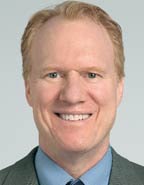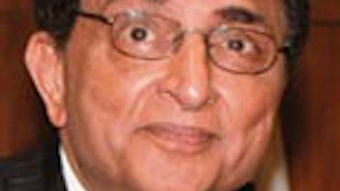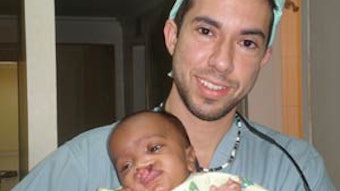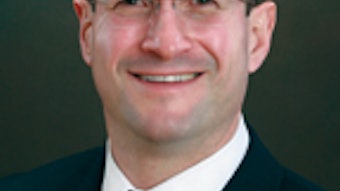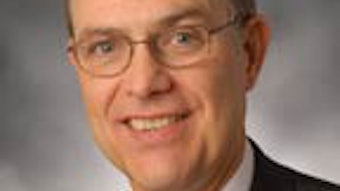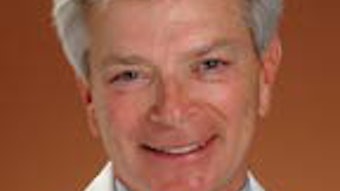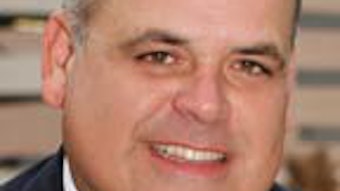Meet the Candidates for President-Elect of the Academy
At the Board of Governors Spring Meeting in March 2011, Gavin Setzen, MD, immediate past chair of BOG, and chair of the BOG Nominating Committee/Nominee Platform Work Group, provided an overview of the Candidates Forum session. Because of prior international speaking commitments, neither candidate for president-elect was available to be in attendance at the BOG Spring Meeting. In advance of the meeting, both candidates were provided with questions developed by the BOG Nominee Platform Work Group, and each candidate’s responses were videotaped and shown to the attendees. The following transcripts were made from the videos especially for this Bulletin. Links to the video clips can also be accessed at www.entnet.org/Community/public/Presidents-Elect-Forum.cfm. The entire slate of candidates’ official statements will appear in the June Bulletin and be posted on the Academy’s website for review. Note: Both candidates were given the same treatment and instruction in the preparation of the following forum materials. QUESTION 1: Choosing two elements of the Academy’s Strategic Plan, how would you propose to advance them over the next three years while in the influential positions of president-elect, president, and immediate past president. Michael S. Benninger, MD: I’m Mike Benninger, and I’m the chairman of the Head Neck Institute of the Cleveland Clinic. I would like to begin by thanking the Nominating Committee for proposing me to be the candidate for the presidency of the American Academy of Otolaryngology—Head and Neck Surgery. The opportunity to run for this office is a remarkable honor and, frankly, it is a bit humbling. I would also like to congratulate my good friend, Jim Netterville, on his well-deserved nomination. I strongly believe that the future of our specialty should be built on the foundations of professionalism, the pursuit of excellence, and improving the patient care, quality, safety, and experience. I believe that I have the experience and the fortitude to take on this most important position and to represent and advocate for you, our membership. I’ve dedicated most of my professional career to the Academy, and there is no organization that is more important to both the practices of but also the academic growth of otolaryngologists, and not only in the United States but worldwide. I believe that my efforts have helped to strengthen the mission of the Academy in supporting members through education, through research, and advocacy. I have served in many capacities for the Academy and Foundation. I have been the chairman of the Board of Governors. I’ve been the vice president, and I served as the editor of the White Journal. I spent four years on the Executive and Finance Committee, and 11 consecutive years on the Board of Directors. I believe that these experiences have provided me not only with a strong background and familiarity with governance but also the foundation to lead this remarkable organization. I have also been a delegate to the AMA on behalf of the Academy. I’ve been a member of a number of different committees, two of them as chairman, and I’ve served on the Taskforce for New Materials and the Home Study Course. I have a strong administrative background and a strong budgetary background, having chaired a large ENT department and now a large institute and having been the treasurer of the American Laryngological Association. I’ve been president of the American Rhinologic Society and will soon be president of the American Laryngological Association (ALA). I really feel that I represent both town and gown. I’m an academic ENT but still have part of my practice in a suburban general ENT practice. I was a member of the House of Delegates both to the AMA and the Michigan State Medical Society. Although I have a strong research and publication background and I’ve served both on the Residency Review Committee and as a Senior Board Examiner, I believe that I represent all of otolaryngology, particularly in my many years on the Board of Governors. The American Academy of Otolaryngology—Head and Neck Surgery is a remarkable organization that empowers otolaryngologists to deliver the best patient care and is critical to the future of our specialty. I love this organization, and I’m grateful that I’ve been a part of it. I believe that my experiences both within the Academy and without have helped to prepare me to be able to lead this amazing organization; and I know that with the support and participation of you, our members, the elective leadership, the Board of Governors, and our terrific staff that I will be able to promote our specialty, advocate for our members, and tackle our key strategic issues. Over the next few years, the challenges that our members will have to meet will be great and likely increasing. Not only do we have diminished payments, rising healthcare costs, and increasing self- and non-pay patients, the implementation of the Healthcare Reform Act will require renewed emphasis on healthcare advocacy, health policy, and education. The provisions of the reform are confusing, and the necessary actions for physicians are still nebulous. Most busy otolaryngologists have neither the time nor the resources to figure out the fine details of what they will be required to do, and continued assistance from our Academy is critical. We, as an organization, believe that any healthcare reform must be built on a solid foundation and in the best interest of our patients. Although advocacy and representation are the keys to defining the future of otolaryngology, education will serve to ease those transitions and strengthen our responses. We will continue to be challenged by governmental rules and regulations and by other payers and regulators, so our Academy should continue to strengthen our advocacy for all otolaryngologists and help us to navigate the myriad regulations and definitions. The overall shortage of otolaryngologists and maldistribution has been well-shown through work done through the Academy and spearheaded by Rick Pillsbury. We need to take on a more proactive role in evaluating the long-term threats to our practices and in finding solutions to improve distribution of ENT care, assuring access, and protecting our critical roles. There is no specialty that can do what we can, and there’s no organization that represents all of otolaryngology like the Academy. We may at times need support from other physicians and non-physician specialty providers, but the coordination of care for the management of patients with otolaryngologic disorders needs to remain with the otolaryngologists. Our challenge is to meet this demand and distribution while retaining the critical role of supporting the best quality, safety, and appropriate care for our patients. A clear part of this is protecting and growing our practices, our practices that define the highest quality of otolaryngology care. Finally, we must continue to advocate for meaningful tort reform. Our Academy has done much to support these changes, but we will need to do more and in a large part through the engagement and participation of our members. I’ve been active in organized medicine for most of my career, not only for the Academy but in many of our subspecialty societies, as president of the state ENT society and as a member of the House of Delegates both for the AMA and the Michigan State Medical Society. When I was chairman of the Board of Governors, we started the ENT PAC. I coordinate ENT care in an integrated system of multiple hospitals and a blend of high-intensity tertiary care along with regional general practice with employed physicians and with private practitioners and with academic and nonacademic practices. I have the experience and I will be dedicated to help provide leadership through these complex times and to advocate for the unique and essential role of all otolaryngologists in providing the highest quality of care for our patients. QUESTION 2: Diversity, specialty unity, and collaboration between our Academy and the specialty societies are very important to the stability and future success of our Academy. How do you propose promoting and securing these goals in an era of increased competition, fragmentation, and evolving healthcare reform? Michael Benninger, MD: The future of otolaryngology and the role of the Academy in designing that future will require that we come together as one specialty to represent the needs of our patients. One of the key objectives of the Academy is to promote specialty, strength, and unity. This will require building and sustaining an engaged membership, strengthening our development of future leaders and dedicated workers, and through collaboration between our sister societies. I feel that I have the strength and the experiences which can help meet this critical strategic goal. The otolaryngology community has many parts and organizations and with the Academy serving as the overreaching organization for each of these parts. Our remarkable subspecialty societies play an important role in educating their members, growing science, and improving critical care. Each of them has made a unique impact on otolaryngology and their size, independence, and more focused area of interest has led to important focused educational, research, and advocacy programs. As a group of otolaryngology organizations, our specialty is great. But as a coordinated cohesive group of organizations, our potential is unlimited. As the pressures of healthcare reform, decreasing payments, reductions in research and education financing, and growing regulations impact all of us, now is the time for our specialty societies in the Academy to continue our path to cohesiveness and unity. We need to do this with a focus of our patients always as the highest priority and with an outlook for promoting the legacy of otolaryngology for our future doctors. In addition to my career of involvement in the Academy, my background in organized medicine and our sister organizations is strong. I was president of the American Rhinologic Society and soon to be president of the ALA. I have served on the Triological Society Council and on the boards of the Voice Foundation, the Society of Head Neck Nurses, and the International Association of Phonosurgery. I also chaired the Sinus and Allergy Health Partnership, which was a joint venture between the Academy, the American Academy of Otolaryngic Allergy, and the American Rhinologic Society. These experiences have given me insight into the needs of our smaller organizations while still understanding and promoting issues that are important to all otolaryngologists. I also have spent much of my career developing future leaders. Although each of these people individually controls their own destiny, leaders help to develop other leaders. Many of the people that I have supported have gone on to become active leaders in their own right, with many of them in the Academy, including our current chairman of the Board of Governors, Mike Seidman. If elected President, it will be one of my highest priorities to continue the efforts to promote specialty, strength, and unity, to engage our membership, and to help cultivate the next generation of leaders in otolaryngology. James L. Netterville, MD: My friends, I am so sorry that I’m not with you this week in Washington. I cannot let this moment pass without thanking you again for honoring me with one of the most cherished awards of my career, the 2009 Board of Governors Practitioner of Excellence Award. I’m a full-time clinician just like most of you. I’m treating patients five to six days a week. Therefore, to receive the Practitioner Excellence Award from you, friends and peers who are actively treating patients daily, has been one of the highlights of my career. On this occasion, I’m extremely honored to be nominated for the presidency of our Academy. I would like to answer the two questions you forwarded to me and then end with some closing remarks. When you’re facing a massive shift in healthcare delivery that we have never seen before, we as doctors are facing a radical change in the way we practice medicine that we have never seen before; therefore, we need action that has never been delivered before. Our new Affordable Care Act presents two distinct reimbursement strategies, both with the purpose of broadening the unit of payment beyond fee-for-service and including quality into the payment system. This plan is an extensive experiment with the initiatives that include bundled payments, setting up of accountable care organizations. The Affordable Care Act also delegates to the Secretary of Health the implementation of payment reform. It has been totally removed from congressional oversight. In this same year, we are to change overnight from using 17,000 ICD-9 codes to 150,000 ICD-10 codes. In order for you to be paid, every form and every computer program will have to be updated. How will our advocacy deal with these radical changes in health policy? How will our educational programs prepare us for this coming flood? We at the Academy can play ostrich and hope these changes are never implemented or we can become proactive and develop tools to educate the Academy members on how to take advantage of this coming chaos. I propose setting up two specific advisory taskforces made up of both internal and external experts. The first would advise on how to structure our Academy’s advocacy to influence the implementation of the new program to our benefit. But equally important, and probably more relevant, this taskforce will give us direction on how to adjust of to what we cannot change. The second taskforce would be charged to work with the Academy’s educational program to set up a series of seminars at our Academy meeting specifically to address each of these potential changes. We desperately need education in organizational behavior of the policy, governance management, strategy, operations, so we can be prepared for involvement in value-based purchasing, bundled payments, and accountable care organizations. As we see these changes coming, questions loom in our mind: How will a small practice prepare for involvement in a large accountable care organization? How will we negotiate an equitable portion of a bundled payment for an entire patient visit? How will we measure and demonstrate quality in our practice? Our Academy must prepare to educate and advocate for us with this coming flood of healthcare. QUESTION 2: Diversity, specialty unity, and collaboration between our Academy and the specialty societies are very important to the stability and future success of our Academy. How do you propose promoting and securing these goals in an era of increased competition, fragmentation, and evolving healthcare reform? James L. Netterville, MD: First, we should not concentrate so much on our differences but on our common ground, for our common ground is far greater than our differences. At times, we have permitted the loud voices of a few doctors to create an illusion of divergence and fragmentation when in reality 98 percent of our needs we all hold in common. Although it is critically important to do everything possible to work toward unity, we must not allow an emphasis on this topic to create a perception of fragmentation that is far greater than reality. In spite of this vast common ground, enhancement in our communication and unity is needed. As I participated in our Board of Directors over the last three years, I’ve supported and voted for several initiatives toward this goal. An excellent example is the SSAC, a Specialty Society Advisory Council, which in its first one-and-a half years has made tremendous strides. With the strength of two voting seats on the Academy board, a position on the Executive Committee of the BOG, and multiple appointments to influential committees, this council has fully integrated into our academy fabric, bringing the voices of the specialty societies to the forefront of all discussions. Also this last year, I supported the creation of the new Women in Otolaryngology section. This was created in an effort to identify and represent the unique needs of our women colleagues. In Boston, our female partners raised over $400,000 in four days to found the Women in Otolaryngology Endowment through our Millennium Society. The majority of this money came from new donors demonstrating the power of this group to develop member loyalty and involvement in our Academy. I plan to use these as templates to create forums for any subset of our membership who may feel underrepresented by our Academy. When I was a child, I remember coming to blows as mortal enemies with my brother over a critical issue of what television channel we were going to watch. If we had parted ways over what seemed like such an important issue at that moment, I would have lost one of the most loyal friendships of my life. Through our unity as adults, we have survived many crises together. My major goal over the next three years is to help us all to see how actually united we are, how our goals and needs are truly the same, and how insignificant some of our differences really are. We are a small family that is being attacked from all directions. It is only through our unity that we will succeed. I work daily in a university setting surrounded by medical students, residents, and junior faculty who are constantly barraged with negative feelings about their future in medicine. A critical component of my role as their teacher, as their professor, is to encourage these young doctors so they don’t lose sight of the joy that a life of service to others offers to us all. I encourage them daily that they have made the right choice to be able to serve mankind in a way that no other profession can. The ability to lead with encouragement is an essential capacity that the leaders or our Academy need to possess. If we are not careful, our perception of our environment can often be tainted by a few factors that overshadow the real meaning to what we offer to our patients. We must never forget that we have been given a remarkable gift, the gift to be involved in the lives of our patients, to provide healing, to relieve suffering, to share joy with them when we return quality to their lives. If I’m so fortunate to represent you as a president of our Academy, my ambition is to listen to each of you and for us to work together to accomplish our goals, to work together to influence legislation that opposes our common objective of providing best quality and affordable care to our patients, to work to oppose all those who want to deliver this same care without the appropriate knowledge or training, to continue to improve the most remarkable otolaryngology educational program in the world with specific targets to prepare us for the changes in healthcare and maintenance of certification, to expand our joint research and quality outcome studies, to find new ways to expand our philanthropic base to create a powerful vibrant Academy for the next generation, and finally I plan to pray daily for peace and for wisdom for each of you, for the academy leaders, the academy staff as we struggle with the inevitable yet uncertain changes that lay ahead of us. Our Academy is a unique and remarkable society. It is by far the most premier and influential otolaryngology society in the world. I am passionate about the role of our Academy in our professional lives. It would be the singular honor of my life to be able to serve each of you through the presidency of our Academy.
At the Board of Governors Spring Meeting in March 2011, Gavin Setzen, MD, immediate past chair of BOG, and chair of the BOG Nominating Committee/Nominee Platform Work Group, provided an overview of the Candidates Forum session. Because of prior international speaking commitments, neither candidate for president-elect was available to be in attendance at the BOG Spring Meeting. In advance of the meeting, both candidates were provided with questions developed by the BOG Nominee Platform Work Group, and each candidate’s responses were videotaped and shown to the attendees. The following transcripts were made from the videos especially for this Bulletin. Links to the video clips can also be accessed at www.entnet.org/Community/public/Presidents-Elect-Forum.cfm.
The entire slate of candidates’ official statements will appear in the June Bulletin and be posted on the Academy’s website for review.
Note: Both candidates were given the same treatment and instruction in the preparation of the following forum materials.
| QUESTION 1: Choosing two elements of the Academy’s Strategic Plan, how would you propose to advance them over the next three years while in the influential positions of president-elect, president, and immediate past president. | |||
Michael S. Benninger, MD: I’m Mike Benninger, and I’m the chairman of the Head Neck Institute of the Cleveland Clinic. I would like to begin by thanking the Nominating Committee for proposing me to be the candidate for the presidency of the American Academy of Otolaryngology—Head and Neck Surgery. The opportunity to run for this office is a remarkable honor and, frankly, it is a bit humbling. I would also like to congratulate my good friend, Jim Netterville, on his well-deserved nomination. I strongly believe that the future of our specialty should be built on the foundations of professionalism, the pursuit of excellence, and improving the patient care, quality, safety, and experience. I believe that I have the experience and the fortitude to take on this most important position and to represent and advocate for you, our membership. I’ve dedicated most of my professional career to the Academy, and there is no organization that is more important to both the practices of but also the academic growth of otolaryngologists, and not only in the United States but worldwide. I believe that my efforts have helped to strengthen the mission of the Academy in supporting members through education, through research, and advocacy. I have served in many capacities for the Academy and Foundation. I have been the chairman of the Board of Governors. I’ve been the vice president, and I served as the editor of the White Journal. I spent four years on the Executive and Finance Committee, and 11 consecutive years on the Board of Directors. I believe that these experiences have provided me not only with a strong background and familiarity with governance but also the foundation to lead this remarkable organization. I have also been a delegate to the AMA on behalf of the Academy. I’ve been a member of a number of different committees, two of them as chairman, and I’ve served on the Taskforce for New Materials and the Home Study Course. I have a strong administrative background and a strong budgetary background, having chaired a large ENT department and now a large institute and having been the treasurer of the American Laryngological Association. I’ve been president of the American Rhinologic Society and will soon be president of the American Laryngological Association (ALA). I really feel that I represent both town and gown. I’m an academic ENT but still have part of my practice in a suburban general ENT practice. I was a member of the House of Delegates both to the AMA and the Michigan State Medical Society. Although I have a strong research and publication background and I’ve served both on the Residency Review Committee and as a Senior Board Examiner, I believe that I represent all of otolaryngology, particularly in my many years on the Board of Governors. The American Academy of Otolaryngology—Head and Neck Surgery is a remarkable organization that empowers otolaryngologists to deliver the best patient care and is critical to the future of our specialty. I love this organization, and I’m grateful that I’ve been a part of it. I believe that my experiences both within the Academy and without have helped to prepare me to be able to lead this amazing organization; and I know that with the support and participation of you, our members, the elective leadership, the Board of Governors, and our terrific staff that I will be able to promote our specialty, advocate for our members, and tackle our key strategic issues. Over the next few years, the challenges that our members will have to meet will be great and likely increasing. Not only do we have diminished payments, rising healthcare costs, and increasing self- and non-pay patients, the implementation of the Healthcare Reform Act will require renewed emphasis on healthcare advocacy, health policy, and education. The provisions of the reform are confusing, and the necessary actions for physicians are still nebulous. Most busy otolaryngologists have neither the time nor the resources to figure out the fine details of what they will be required to do, and continued assistance from our Academy is critical. We, as an organization, believe that any healthcare reform must be built on a solid foundation and in the best interest of our patients. Although advocacy and representation are the keys to defining the future of otolaryngology, education will serve to ease those transitions and strengthen our responses. We will continue to be challenged by governmental rules and regulations and by other payers and regulators, so our Academy should continue to strengthen our advocacy for all otolaryngologists and help us to navigate the myriad regulations and definitions. The overall shortage of otolaryngologists and maldistribution has been well-shown through work done through the Academy and spearheaded by Rick Pillsbury. We need to take on a more proactive role in evaluating the long-term threats to our practices and in finding solutions to improve distribution of ENT care, assuring access, and protecting our critical roles. There is no specialty that can do what we can, and there’s no organization that represents all of otolaryngology like the Academy. We may at times need support from other physicians and non-physician specialty providers, but the coordination of care for the management of patients with otolaryngologic disorders needs to remain with the otolaryngologists. Our challenge is to meet this demand and distribution while retaining the critical role of supporting the best quality, safety, and appropriate care for our patients. A clear part of this is protecting and growing our practices, our practices that define the highest quality of otolaryngology care. Finally, we must continue to advocate for meaningful tort reform. Our Academy has done much to support these changes, but we will need to do more and in a large part through the engagement and participation of our members. I’ve been active in organized medicine for most of my career, not only for the Academy but in many of our subspecialty societies, as president of the state ENT society and as a member of the House of Delegates both for the AMA and the Michigan State Medical Society. When I was chairman of the Board of Governors, we started the ENT PAC. I coordinate ENT care in an integrated system of multiple hospitals and a blend of high-intensity tertiary care along with regional general practice with employed physicians and with private practitioners and with academic and nonacademic practices. I have the experience and I will be dedicated to help provide leadership through these complex times and to advocate for the unique and essential role of all otolaryngologists in providing the highest quality of care for our patients. QUESTION 2: Diversity, specialty unity, and collaboration between our Academy and the specialty societies are very important to the stability and future success of our Academy. How do you propose promoting and securing these goals in an era of increased competition, fragmentation, and evolving healthcare reform? Michael Benninger, MD: The future of otolaryngology and the role of the Academy in designing that future will require that we come together as one specialty to represent the needs of our patients. One of the key objectives of the Academy is to promote specialty, strength, and unity. This will require building and sustaining an engaged membership, strengthening our development of future leaders and dedicated workers, and through collaboration between our sister societies. I feel that I have the strength and the experiences which can help meet this critical strategic goal. The otolaryngology community has many parts and organizations and with the Academy serving as the overreaching organization for each of these parts. Our remarkable subspecialty societies play an important role in educating their members, growing science, and improving critical care. Each of them has made a unique impact on otolaryngology and their size, independence, and more focused area of interest has led to important focused educational, research, and advocacy programs. As a group of otolaryngology organizations, our specialty is great. But as a coordinated cohesive group of organizations, our potential is unlimited. As the pressures of healthcare reform, decreasing payments, reductions in research and education financing, and growing regulations impact all of us, now is the time for our specialty societies in the Academy to continue our path to cohesiveness and unity. We need to do this with a focus of our patients always as the highest priority and with an outlook for promoting the legacy of otolaryngology for our future doctors. In addition to my career of involvement in the Academy, my background in organized medicine and our sister organizations is strong. I was president of the American Rhinologic Society and soon to be president of the ALA. I have served on the Triological Society Council and on the boards of the Voice Foundation, the Society of Head Neck Nurses, and the International Association of Phonosurgery. I also chaired the Sinus and Allergy Health Partnership, which was a joint venture between the Academy, the American Academy of Otolaryngic Allergy, and the American Rhinologic Society. These experiences have given me insight into the needs of our smaller organizations while still understanding and promoting issues that are important to all otolaryngologists. I also have spent much of my career developing future leaders. Although each of these people individually controls their own destiny, leaders help to develop other leaders. Many of the people that I have supported have gone on to become active leaders in their own right, with many of them in the Academy, including our current chairman of the Board of Governors, Mike Seidman. If elected President, it will be one of my highest priorities to continue the efforts to promote specialty, strength, and unity, to engage our membership, and to help cultivate the next generation of leaders in otolaryngology. |
James L. Netterville, MD: My friends, I am so sorry that I’m not with you this week in Washington. I cannot let this moment pass without thanking you again for honoring me with one of the most cherished awards of my career, the 2009 Board of Governors Practitioner of Excellence Award. I’m a full-time clinician just like most of you. I’m treating patients five to six days a week. Therefore, to receive the Practitioner Excellence Award from you, friends and peers who are actively treating patients daily, has been one of the highlights of my career. On this occasion, I’m extremely honored to be nominated for the presidency of our Academy. I would like to answer the two questions you forwarded to me and then end with some closing remarks. When you’re facing a massive shift in healthcare delivery that we have never seen before, we as doctors are facing a radical change in the way we practice medicine that we have never seen before; therefore, we need action that has never been delivered before. Our new Affordable Care Act presents two distinct reimbursement strategies, both with the purpose of broadening the unit of payment beyond fee-for-service and including quality into the payment system. This plan is an extensive experiment with the initiatives that include bundled payments, setting up of accountable care organizations. The Affordable Care Act also delegates to the Secretary of Health the implementation of payment reform. It has been totally removed from congressional oversight. In this same year, we are to change overnight from using 17,000 ICD-9 codes to 150,000 ICD-10 codes. In order for you to be paid, every form and every computer program will have to be updated. How will our advocacy deal with these radical changes in health policy? How will our educational programs prepare us for this coming flood? We at the Academy can play ostrich and hope these changes are never implemented or we can become proactive and develop tools to educate the Academy members on how to take advantage of this coming chaos. I propose setting up two specific advisory taskforces made up of both internal and external experts. The first would advise on how to structure our Academy’s advocacy to influence the implementation of the new program to our benefit. But equally important, and probably more relevant, this taskforce will give us direction on how to adjust of to what we cannot change. The second taskforce would be charged to work with the Academy’s educational program to set up a series of seminars at our Academy meeting specifically to address each of these potential changes. We desperately need education in organizational behavior of the policy, governance management, strategy, operations, so we can be prepared for involvement in value-based purchasing, bundled payments, and accountable care organizations. As we see these changes coming, questions loom in our mind: How will a small practice prepare for involvement in a large accountable care organization? How will we negotiate an equitable portion of a bundled payment for an entire patient visit? How will we measure and demonstrate quality in our practice? Our Academy must prepare to educate and advocate for us with this coming flood of healthcare. QUESTION 2: Diversity, specialty unity, and collaboration between our Academy and the specialty societies are very important to the stability and future success of our Academy. How do you propose promoting and securing these goals in an era of increased competition, fragmentation, and evolving healthcare reform? James L. Netterville, MD: First, we should not concentrate so much on our differences but on our common ground, for our common ground is far greater than our differences. At times, we have permitted the loud voices of a few doctors to create an illusion of divergence and fragmentation when in reality 98 percent of our needs we all hold in common. Although it is critically important to do everything possible to work toward unity, we must not allow an emphasis on this topic to create a perception of fragmentation that is far greater than reality. In spite of this vast common ground, enhancement in our communication and unity is needed. As I participated in our Board of Directors over the last three years, I’ve supported and voted for several initiatives toward this goal. An excellent example is the SSAC, a Specialty Society Advisory Council, which in its first one-and-a half years has made tremendous strides. With the strength of two voting seats on the Academy board, a position on the Executive Committee of the BOG, and multiple appointments to influential committees, this council has fully integrated into our academy fabric, bringing the voices of the specialty societies to the forefront of all discussions. Also this last year, I supported the creation of the new Women in Otolaryngology section. This was created in an effort to identify and represent the unique needs of our women colleagues. In Boston, our female partners raised over $400,000 in four days to found the Women in Otolaryngology Endowment through our Millennium Society. The majority of this money came from new donors demonstrating the power of this group to develop member loyalty and involvement in our Academy. I plan to use these as templates to create forums for any subset of our membership who may feel underrepresented by our Academy. When I was a child, I remember coming to blows as mortal enemies with my brother over a critical issue of what television channel we were going to watch. If we had parted ways over what seemed like such an important issue at that moment, I would have lost one of the most loyal friendships of my life. Through our unity as adults, we have survived many crises together. My major goal over the next three years is to help us all to see how actually united we are, how our goals and needs are truly the same, and how insignificant some of our differences really are. We are a small family that is being attacked from all directions. It is only through our unity that we will succeed. I work daily in a university setting surrounded by medical students, residents, and junior faculty who are constantly barraged with negative feelings about their future in medicine. A critical component of my role as their teacher, as their professor, is to encourage these young doctors so they don’t lose sight of the joy that a life of service to others offers to us all. I encourage them daily that they have made the right choice to be able to serve mankind in a way that no other profession can. The ability to lead with encouragement is an essential capacity that the leaders or our Academy need to possess. If we are not careful, our perception of our environment can often be tainted by a few factors that overshadow the real meaning to what we offer to our patients. We must never forget that we have been given a remarkable gift, the gift to be involved in the lives of our patients, to provide healing, to relieve suffering, to share joy with them when we return quality to their lives. If I’m so fortunate to represent you as a president of our Academy, my ambition is to listen to each of you and for us to work together to accomplish our goals, to work together to influence legislation that opposes our common objective of providing best quality and affordable care to our patients, to work to oppose all those who want to deliver this same care without the appropriate knowledge or training, to continue to improve the most remarkable otolaryngology educational program in the world with specific targets to prepare us for the changes in healthcare and maintenance of certification, to expand our joint research and quality outcome studies, to find new ways to expand our philanthropic base to create a powerful vibrant Academy for the next generation, and finally I plan to pray daily for peace and for wisdom for each of you, for the academy leaders, the academy staff as we struggle with the inevitable yet uncertain changes that lay ahead of us. Our Academy is a unique and remarkable society. It is by far the most premier and influential otolaryngology society in the world. I am passionate about the role of our Academy in our professional lives. It would be the singular honor of my life to be able to serve each of you through the presidency of our Academy. |
||
